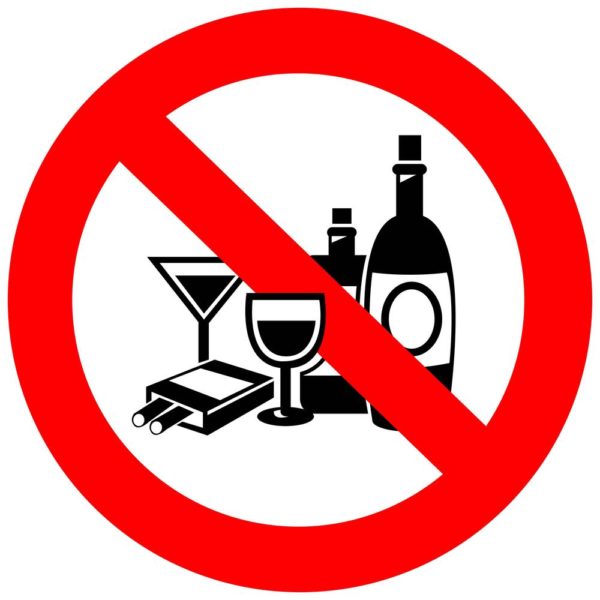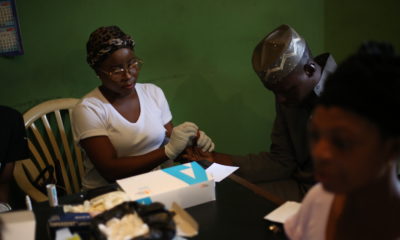Sweet Spot
BN Living: World Hepatitis Day – Dietary Advice to Avoid Liver Damage & Manage Hepatitis
People living with hepatitis need to follow a healthy lifestyle to minimize damage to the liver, this is very important. Hepatitis is a disease that affects the liver – an organ that plays a vital role in keeping our bodies healthy by removing impurities from the food we eat. An unhealthy diet can contribute to liver damage.
If you eat too much high-calorie greasy, fatty, or sugary food, you’ll gain weight and fat will begin to build up in your liver. A “fatty liver” can contribute to developing cirrhosis, or scarring, of the liver. Fat in your liver can also interfere with the effectiveness of drugs that target the hepatitis virus.
Avoiding alcohol and cigarettes is very important for a healthy liver.
Start protecting your liver by paying more attention to nutrition. Here are a few tips to help you out.
General Dietary Advice:
- Eat regular, balanced meals in small portions
- Drink lots of water
- Avoid taking vitamin supplements or over-the-counter drugs without consulting your doctor
- Maintain a healthy calorie intake
- Eat whole-grain cereals, breads, and grains
- Eat lots of fruits and vegetables
- Get adequate protein
- Go easy on fatty, salty, and sugary foods
- Don’t skip meals when recovering from Hepatitis
- Reach and maintain a healthy weight
- Take adequate rest
Foods You Should Avoid:
Avoid toxins, artificial foods and
- Alcohol & Cigarettes – No brainer. The most important change for anyone diagnosed with hepatitis is the complete elimination of alcohol and cigarettes from his or her life.
- Wheat and Gluten – Gluten is highly inflammatory and GMO grains (genetically modified organism) have a higher gluten content. These grains are very hard to digest and are dangerous to your liver.
- Tap Water –Your tap water may contain toxins like heavy metals, chlorine, fluoride, inorganic chemicals and
- compounds that the liver is not able to process. Even the water you shower with every day has toxins in it which are absorbed through the skin and inhaled through the lungs. Filtered water is of course better than tap water. Consider having your water tested to decide what is most appropriate for you and your family. For greater safety, you may want to consider drinking bottled water. Distilled water is another possibility, but there is some controversy over its benefits, therefore you may wish to take distilled water in moderation.
- Junk Foods – These are worthless foods as the name describes. There is no good source of nutrition from junk foods, they are full of all the things we need to stay away from – including fats, sugars, empty calories, chemicals and additives. Our poor livers don’t need this added stress.
- Salt – if you do not have a problem with retaining fluids and you do not have high blood pressure then a little added salt is fine. You can tell if you are retaining fluids by pressing on your shin bone. Press and hold for five seconds; if it’s indented after releasing pressure you are retaining fluids and should reduce your salt intake. Skip these salty dishes.
- White Flour (unless it is organic and unbleached) – Bleached white flour has been chemically processed. Lots of vitamins and minerals are lost during the process; about 78%. When we consume this chemically-altered product our bodies need extra vitamins and minerals in order to process it and utilize it.
- Hydrogenated Oils – Hydrogenated (they are refined) oils are another product that is hard for the liver to handle. This includes any type of oil or fat that hardens when cold. A better choice would be flaxseed oil or virgin olive oil.
- Dairy Products – Full fat dairy foods are extremely hard to digest. Opt for low fat choices or soy produce.
- Fruit Juices – These beverages are high in concentrated sugar. Sugar is a shock to the liver, stresses the digestive process, stresses the pancreas, and it feeds the Hepatitis C virus.
- Artificial Sweeteners – Anything artificial is not good for you and these artificial sweeteners are extremely hard for the liver to process.
- Processed Foods – We all know processed foods contain unnatural substances, preservatives, fillers and chemically treated substances and this is not healthy for us.
Foods You Should Eat:
You should generally aim to maintain a healthy, balanced diet.
- Whole Wheat Bread & Whole Grain Cereals – Whole grains are very beneficial to consume as part of a healthy Hepatitis diet. These can be in the form of bran, whole wheat bread or cereal, brown rice, whole grain pasta or porridge. Include other whole grains such as whole oats, wild rice, rye, oatmeal and corn.
- Vegetables & Fruits – (potatoes in moderation) Fruits and vegetables should be a significant part of any diet to help in recovering from a liver disease. They are full of essential nutrients and are easy to digest. As a bonus, they also contain antioxidants, which can protect the liver cells from damage. However, it is recommended that one go easy on starchy vegetables such as potatoes when on a Hepatitis recovery diet. While canned or frozen fruits are fine it is always a good idea to try and eat fresh and seasonal produce when possible.
- Proteins (all kinds of beans) – Healthy proteins in the form of low-fat milk and dairy products along with lean meats, beans, eggs (egg white especially) and soy products can also be a part of a healthy liver diet.
- Fresh Homemade Juices – vegetable and fruit juices, freshly juiced by you.
Healthy Eating Tips:
- Eat four, small meals per day. Never eat a large meal at one time
- Do not eat for five hours before bedtime
- Try new foods – you may just like them by accident
- Drink lots of distilled water throughout the day
- Take a digestive aid with each meal (this is no compulsory)
- Eat slowly and not in front of the TV, you could end up eating more because of this distraction
- Prepare your foods ahead of time whenever possible so they are ready when you are. You can prepare soups, beans, chili beans and more – and freeze them in microwavable containers
- Chew, chew, chew. The digestive process starts in the mouth. The chewing action begins the release of digestive juices
- If you feel tired, you maybe have eaten too much or the wrong foods. Try lying down and eliminating such foods
- Do not eat when you are angry, frustrated or bored. Instead, go take a walk and talk to yourself. This is a great way to relieve your stress
- Remember to make your changes slowly but surely. It took years to learn those bad habits and it will take time to break them
Sources: Med India, Hepatitis Central, Hepatitis.va.gov
Photo Credit: Dreamstime
























